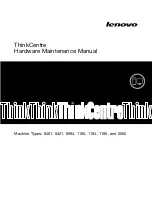
Rapid Spanning Tree Protocol
ExtremeWare XOS 10.1 Concepts Guide
151
To change the existing configuration of a port in an STPD, and return the port to factory defaults, use
the following command:
unconfigure stpd <stpd_name> ports link-type <port_list>
To display detailed information about the ports in an STPD, use the following command:
show stpd <stpd_name> ports {<port_list> {detail}}
RSTP Timers
For RSTP to rapidly recover network connectivity, RSTP requires timer expiration. RSTP derives many
of the timer values from the existing configured STP timers to meet its rapid recovery requirements
rather than relying on additional timer configurations. Table 31 describes the user-configurable timers,
and Table 32 describes the timers that are derived from other timers and not user-configurable.
Table 31: User-configurable timers
Timer
Description
Hello
The root bridge uses the hello timer to send out configuration BPDUs through all of
its forwarding ports at a predetermined, regular time interval. The default value is 2
seconds. The range is 1 to 10 seconds.
Forward delay
A port moving from the blocking state to the forwarding state uses the forward delay
timer to transition through the listening and learning states. In RSTP, this timer
complements the rapid configuration behavior. If none of the rapid rules are in effect,
the port uses legacy STP rules to move to the forwarding state. The default is 15
seconds. The range is 4 to 30 seconds.
Table 32: Derived timers
Timer
Description
TCN
The root port uses the TCN timer when it detects a change in the network topology.
The TCN timer stops when the topology change timer expires or upon receipt of a
topology change acknowledgement. The default value is the same as the value for
the bridge hello timer.
Topology Change
The topology change timer determines the total time it takes the forwarding ports to
send configuration BPDUs. The default value for the topology change timer depends
upon the mode of the port.
•
1d mode—The sum of the forward delay timer (default value is 15 seconds;
range of 4 to 30 seconds) and the max age timer (default value is 20 seconds;
range of 6 to 40 seconds).
•
1w mode—Double the hello timer (default value is 4 seconds)
Message age
A port uses the message age timer to time out receiving BPDUs. When a port
receives a superior or equal BPDU, the timer restarts. When the timer expires, the
port becomes a designated port and a configuration update occurs. If the bridge
operates in 1w mode and receives an inferior BPDU, the timer expires early. The
default value is the same as the STPD bridge max age parameter.
Hold
A port uses the hold timer to restrict the rate that successive BPDUs can be sent.
The default value is the same as the value for the bridge hello timer.
Recent backup
The timer starts when a port leaves the backup role. When this timer is running, the
port cannot become a root port. The default value is double the hello time
(4 seconds).
Summary of Contents for ExtremeWare XOS 10.1
Page 12: ...12 ExtremeWare XOS 10 1 Concepts Guide Contents...
Page 15: ...Part 1 Using ExtremeWare XOS...
Page 16: ......
Page 20: ...20 ExtremeWare XOS 10 1 Concepts Guide ExtremeWare XOS Overview...
Page 32: ...32 ExtremeWare XOS 10 1 Concepts Guide Accessing the Switch...
Page 74: ...74 ExtremeWare XOS 10 1 Concepts Guide Virtual LANs VLANs...
Page 80: ...80 ExtremeWare XOS 10 1 Concepts Guide Forwarding Database FDB...
Page 112: ...112 ExtremeWare XOS 10 1 Concepts Guide Status Monitoring and Statistics...
Page 133: ...Part 2 Using Switching and Routing Protocols...
Page 134: ......
Page 174: ...174 ExtremeWare XOS 10 1 Concepts Guide Virtual Router Redundancy Protocol...
Page 184: ...184 ExtremeWare XOS 10 1 Concepts Guide IP Unicast Routing...
Page 202: ...202 ExtremeWare XOS 10 1 Concepts Guide Interior Gateway Protocols...
Page 216: ...216 ExtremeWare XOS 10 1 Concepts Guide Exterior Gateway Routing Protocols...
Page 224: ...224 ExtremeWare XOS 10 1 Concepts Guide IP Multicast Routing...
Page 225: ...Part 3 Appendixes...
Page 226: ......
Page 234: ...234 ExtremeWare XOS 10 1 Concepts Guide Software Upgrade and Boot Options...
Page 242: ...242 ExtremeWare XOS 10 1 Concepts Guide Troubleshooting...
Page 256: ...4 ExtremeWare XOS 10 1 Concepts Guide Index of Commands...
















































